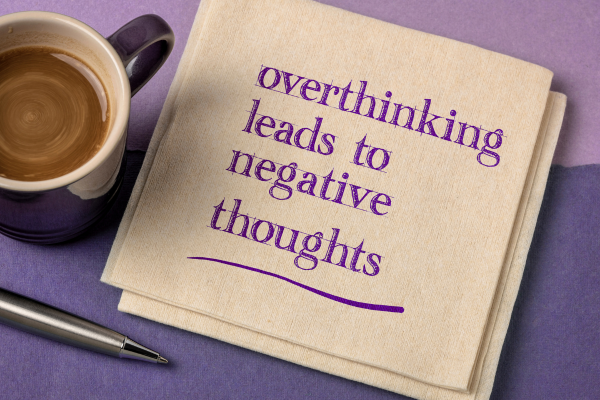
Feeling Anxious? Escape the Trap of Overthinking
Do you ever feel stuck in a memory—something that happened months or even years ago? Maybe a disturbing event from 18 months back still causes you anxiety. You might be having recurring nightmares, constant nervousness, or feel that your body reacts as if it’s happening all over again.
This isn’t your fault.
Your brain is wired to protect you—even if the danger is long gone. But if we don’t work through these past experiences, they can shape our entire future.
Let’s explore why this happens and what we can do to break free from the mental loop of trauma and anxiety.
1. Why We Get Stuck in Negative Memories
Negative experiences, especially from childhood or recent trauma, can get stored deep in our brain’s memory system. These memories can resurface unexpectedly—triggered by sights, smells, or even a thought.
Your body reacts as if you’re in danger—even when you’re safe.
This is because your anxiety system is like a fire alarm. It doesn’t check if it’s a false alarm—it just goes off to protect you.
So if you’re having:
-
Repeating dreams or flashbacks
-
Irrational fears
-
Body tension, fast heartbeat, sweating
…it’s likely a triggered response, not a personal weakness.
2. The Problem with the “Mental Plan”
We all carry a mental plan for how life should go—how relationships, careers, or even small things like travel plans should unfold.
When life doesn’t match our plan:
-
We feel anger — because we’re being blocked.
-
We feel frustration — because our effort isn’t working.
-
We feel disappointment — because we hoped for something better.
-
We feel anxiety — because the future now looks uncertain.
Imagine planning a family vacation and missing your flight. The plan collapses. Your system panics.
This happens not just at airports, but in life goals, marriages, careers, and parenting.
3. How This Cycle Affects Our Emotions
When we hold onto a rigid plan or keep reliving a traumatic past:
-
It destabilizes us emotionally
-
It leads to negative cycles of fear, avoidance, and self-blame
-
We become stuck in “mental paralysis” — unable to move forward
We begin to view every challenge as a threat, every change as chaos.
But what if we changed the way we saw the world?
4. Shifting Perspective: From Obstacles to Possibilities
You can choose to view life either through the lens of obstacles or the lens of opportunity.
Yes, pain and discomfort are real. But we also have choice in how we respond.
“Between stimulus and response, there is a space. In that space is our power to choose.” — Viktor Frankl
The key is to update our inner plan—to become flexible, emotionally resilient, and open to new paths.
5. How to Break Free: Practical Solutions
Here are concrete steps to shift from mental stuckness to emotional flexibility:
1. Work on Willpower (Discipline)
-
Practice saying no to negative thinking loops.
-
Keep a daily journal of wins and triggers.
-
Start the day with intention—even one small task.
2. Fix the Foundation: Sleep, Diet, Exercise
-
Poor sleep makes anxiety worse.
-
Sugar and junk food affect your brain chemistry.
-
Move your body daily—even a 10-minute walk resets your brain.
3. Build Relationship Power
-
Talk to a friend, therapist, or support group.
-
Healthy connections help regulate emotions.
-
Isolation magnifies trauma—connection heals it.
4. Learn New Coping Skills
-
Emotional regulation
-
Breathing techniques
-
Reframing negative thoughts
-
Time blocking for focus and routine
5. Use Neuroplasticity to Rewire Your Brain
Your brain is not fixed.
Neuroplasticity means you can rewire your thoughts, responses, and habits.
Repeat positive actions, and new brain pathways form:
-
Daily affirmations
-
Gratitude lists
-
Meditation
-
Skill-building
Your brain adapts to what you repeatedly do—not what you want.
Summary;
You don’t have to live haunted by the past.
You are not your trauma, not your anxiety, and not your failed plans.
Life may not go according to your original blueprint—but you can redraw the map.
Healing begins when you stop fighting the past and start building the present.
